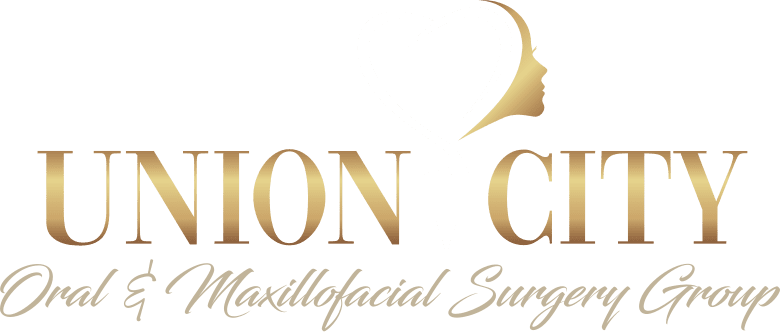Dentist in West New York, NJ
People may need to undergo oral surgical procedures when the problems they have with their teeth, mouth, or jaw can’t be fixed with general dentistry procedures. While oral surgery may sound scary, the experienced oral team at Union City Oral Surgery Group prioritizes patient care from the moment our patients walk through our doors.
Union City Oral Surgery Group is unmatched when it comes to patient care because we understand caring for our patients is about being there for our patients before, during, and after their surgical procedure. Find a trusted and experienced oral surgeon in West New York today by contacting Union City Oral Surgery Group.
The Differences Between General Dentists (GPs) and Oral Specialties (Surgeons)
Many people understand the medical difference between a general doctor and a surgical specialist. Just like there’s a difference between a general doctor and a surgeon, there is also a difference between general dentists and oral specialists. Some of the key differences are that a general dentist diagnoses and treats dental ailments, while an oral surgeon specializes in certain dental procedures. These can include dental implants, treating TMJ issues, and other teeth or jaw issues.
Even though they both provide oral healthcare, an oral surgeon has widespread knowledge beyond dentistry school. Oral surgeons must undergo a four-year hospital-based surgical residency program after completing a Doctor of Dental Medicine (DMD) or Doctor of Dental Surgery (DDS). An oral surgeon must receive the necessary state licensure and permits after completing their residency in order to practice. The majority of oral surgeons obtain board certification, while others pursue fellowships or graduate degrees.
What Are the Benefits of Visiting a West New York Oral Surgeon?
Although it is possible for a medical doctor or dentist to conduct some oral surgical procedures, oral surgeons are the dental profession’s surgical specialists. They are distinguished from other oral health care professionals because of the training required to become an oral surgeon. Patients may be more comfortable with their family dentists, but for certain conditions, it’s critical to see a specialist. Oral surgeons can diagnose and conduct the following procedures:
- Reconstructive surgery and treatment of facial injuries/trauma
- Obstructive sleep apnea surgery
- Corrective jaw surgery
- Treatment of oral, head, and neck malignancies
- Cleft palate and lip surgery
- TMJ disorders treatment
- Dental implant surgery
- Teeth extractions
- Wisdom tooth management
- Facial cosmetic surgery
When you’re facing serious oral health concerns, the best thing to do is to have an oral specialist that understands your conditions and who can perform the procedure necessary to improve your oral health.
When Are Oral Surgery Procedures Necessary?
Dentists tend to recommend oral surgery procedures to patients when the other treatment options they’ve tried have been unsuccessful in addressing the issue. Conditions that often require oral surgery procedures include:
Tooth Extraction
Tooth extraction is one of the most common oral surgery procedures. Extracts are performed to prevent the spread of decay and gum disease when a tooth becomes too damaged to be salvaged, or when there’s no room in the mouth for the tooth to erupt properly. Visible teeth may be extracted without surgery. However, when a tooth is struck under the gum, surgery is often required.
Dental Implants
Dental implants are the most common option for replacing missing teeth because they’re reliable and long-lasting. Unlike dentures, which sit on top of the gums, implants are fused to the jaw bone before an artificial tooth is screwed to the top to restore the appearance of the patient’s teeth. This procedure requires an oral surgeon to cut into the gum tissue and the jaw bone.
Bone Grafting
Bone grafting is typically performed on patients who want to get dental implants but do not have enough bone mass in their jaws to hold the implant securely in place. The procedure takes some bone from another part of the body, or from a synthetic graft, and uses it to increase the density of the bone in the jaw.
Apicoectomy
Apicoectomy is a procedure performed if a root canal is not sufficient enough to stop the spread of infection from a dead nerve inside a tooth. During this procedure, the dentist removes the infected portion of the tooth’s roots before filling the root to prevent future infections.
Corrective Jaw Surgery
Corrective jaw surgery, or orthognathic surgery, is used to treat conditions of misalignment of the jaw and teeth that create oral health problems. The surgery helps to fix speaking, breathing, and chewing problems, as well as sleep apnea.
Root Amputation and Dental Hemisection
A root amputation is the surgical removal of one of the roots in a tooth if the tooth is multi-rooted. If one or more roots become infected or there is significant bone loss around the tooth, the oral surgeon may need to perform a procedure known as hemisection. During this procedure, the oral surgeon removes half of the tooth, leaving a serviceable one-rooted tooth.
Crown Lengthening Procedures
Before a crown can be placed on a tooth that is broken, cracked, or otherwise weakened by decay, the patient may need to undergo a crown lengthening procedure to ensure that the tooth’s structure will be able to hold the crown in place securely.
Contact a Skilled and Experienced West New York Oral Surgeon at Union City Oral Surgery Group
Oral surgery procedures address problems that patients have with their oral and facial structures. These procedures help improve the appearance and functionality of their mouth, teeth, gums, and jaw. At Union City Oral Surgery Group, we are proud to offer state-of-the-art procedures and techniques in West NY that address the oral health concerns our patients come in with.
Union City Oral Surgery Group is dedicated to helping patients regain their confidence in their smiles. We know how challenging life can be when dealing with oral health problems and are ready to help our patients get the treatment they need to improve their health, quality of life, and their smile. Whether you’d like to schedule an appointment or want to learn more about our painless oral surgery procedures, contact our West New York office at (201) 601-9262 or complete our online contact form.


